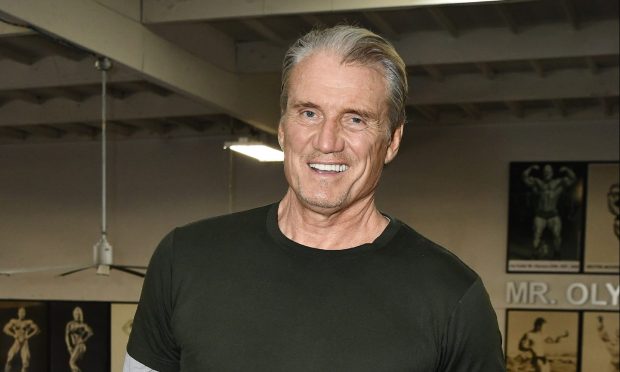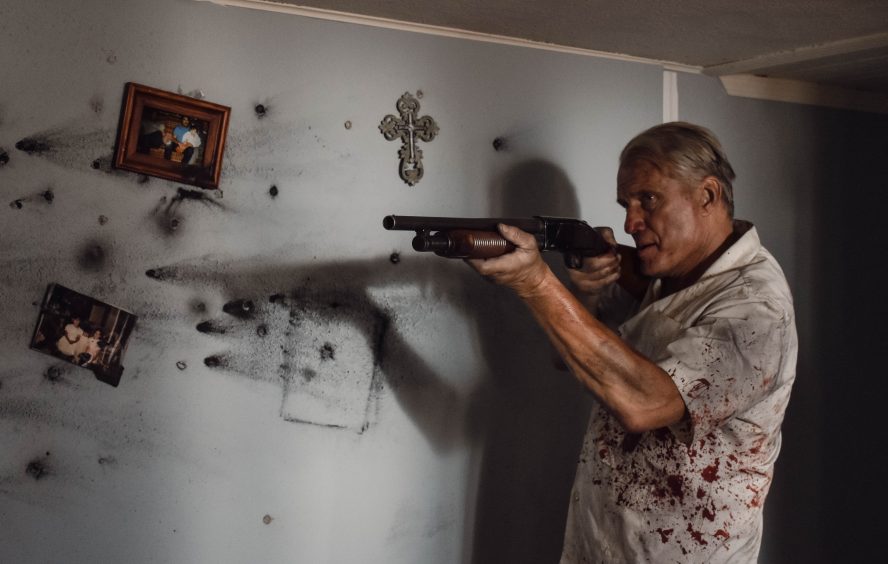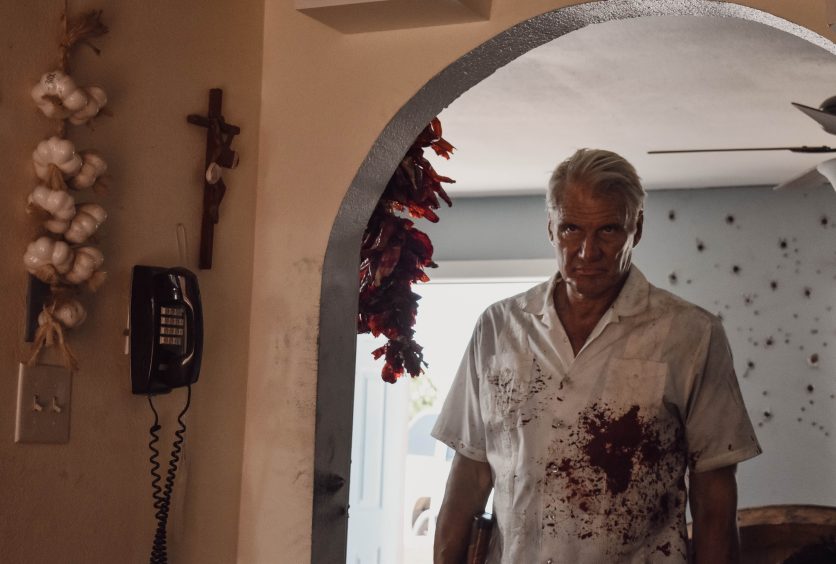
Action icon Dolph Lundgren chats about his latest movie, career longevity and cancer.
Why did your new movie, Wanted Man, take so many years to reach the screen?
I started to write the script about 15 years ago, then went on to do other things, like directing some movies and doing The Expendables, Aquaman and Creed II.
Then I went to a pool party and a guy went off on a drunken rant about immigration and it reminded me of this script, so I went back to it with the writer and then I got someone who wanted to make it.
You play an ageing detective with outdated policing methods who is sent to Mexico to extradite a witness. There are themes of racism and immigration – is it important for you to introduce serious topics to your action films?
I think it’s interesting if you can comment on humanity a little bit and not sugarcoat it too much. If I can put anything in that feels real and I can emotionally get behind, it’s easier for me to work and be motivated.
Quite often in action movies the hero is indestructible. Why did you decide not to do that in this film?
I’ve done a lot of movies, like some of The Expendables films, where you get shot at by a thousand bullets and nothing hits you. I don’t mind being in a film like that, but I prefer something like The Godfather, Heat, and Eastwood’s pictures where they are more realistic and have a certain gritty quality.
As you grow older, it’s better to play your age and play more vulnerability rather than be a superhero. That’s cool when you’re 30 but maybe not when you’re 60.
You star, direct, produce and co-write Wanted Man. Do you like having that responsibility?
Showbusiness is slightly masochistic – you do it for the love but it’s always more work than you think. You’re out there in 140 degree Celsius heat, rolling around in the dust trying to direct a movie while someone is shooting at you, and you think, ‘Maybe I shouldn’t have done this!’ I should’ve got involved even more – I would rather have responsibility for the whole thing if it’s a smaller movie.
Your co-stars include people you’ve worked with before, such as Kelsey Grammar and Michael Pare?
Filmmaking is physically tough, so it’s good to have people you know won’t complain too much and will be up for some tougher conditions – an indie movie shooting in 21-22 days, it’s not cushy, it’s tough.
All films are tough, but if you make something like Aquaman it’s hard work in another way, having to do 30 takes and it’s tiring. In indie movies it moves quickly so you have to be prepared, and we don’t use so many doubles and things like that.
Your daughter Greta worked behind the scenes on the movie?
She was in the art department and it was great for her. She’d been on film sets when she was little but didn’t realise how much work there was.
I had a bit of an issue, as you do with 18, 19, 20 year-old daughters and dads, there can be a bit of friction there, so it was healing for both of us to do it together.
For her to see how hard I work and for me to realise she’s really tough and worked hard and people were impressed by her.
This year marks 40 years since you entered the movie industry and you’ve been working on a documentary about your life. What’s it been like to reflect on the past four decades?
Every time I watch it, it’s a little daunting and slightly unreal to see those images of yourself as a young man. Seeing the old footage, it’s like a different person, but it’s the same soul and is someone who has evolved.
I think people who watch it will learn other things about me and there’s an inspirational lesson I hope can maybe help people. We’re hoping it will be out this year.
You announced 12 months ago you had been battling cancer for a number of years. Why did you decide to go public?
It’s part of the documentary, so I wanted to get it out there before that is released, because it had become this secret. I also wanted to inspire other people. It’s had a big, positive impact on my day-to-day life, funnily enough.
I thought it might be the opposite, where people said, ‘Forget him, we can’t work him now because he’s going to die soon’. But it wasn’t like that. Things are looking good and I’m happy about that. I have scans every three months – the last one was good and hopefully it will stay that way.
Has it changed your outlook on life?
I look at life differently and every day has a vibrancy about it that it didn’t have before. I’ve played these indestructible characters and then you deal with mortality in your own life. It’s been interesting.
To what do you credit your career longevity?
It takes a lot of hard work and luck, and the universe has to come along and help you, I think. I was on my way out of the business many times, but something always showed up, like Expendables and Aquaman and these bigger movies. I always plugged away and tried to put out positive energy and be a good person. I’ve always tried to do that whether the film turned out the way I wanted.
I always tried to feel good about it, and they say the energy comes back to you. Maybe that’s what’s happening. Maybe that’s why I’m still around even though I’ve done a lot of movies that weren’t the greatest but, you know, I kept working.
Wanted Man is now available to buy or rent digitally

Enjoy the convenience of having The Sunday Post delivered as a digital ePaper straight to your smartphone, tablet or computer.
Subscribe for only £5.49 a month and enjoy all the benefits of the printed paper as a digital replica.
Subscribe © Signature Entertainment
© Signature Entertainment © Signature Entertainment
© Signature Entertainment